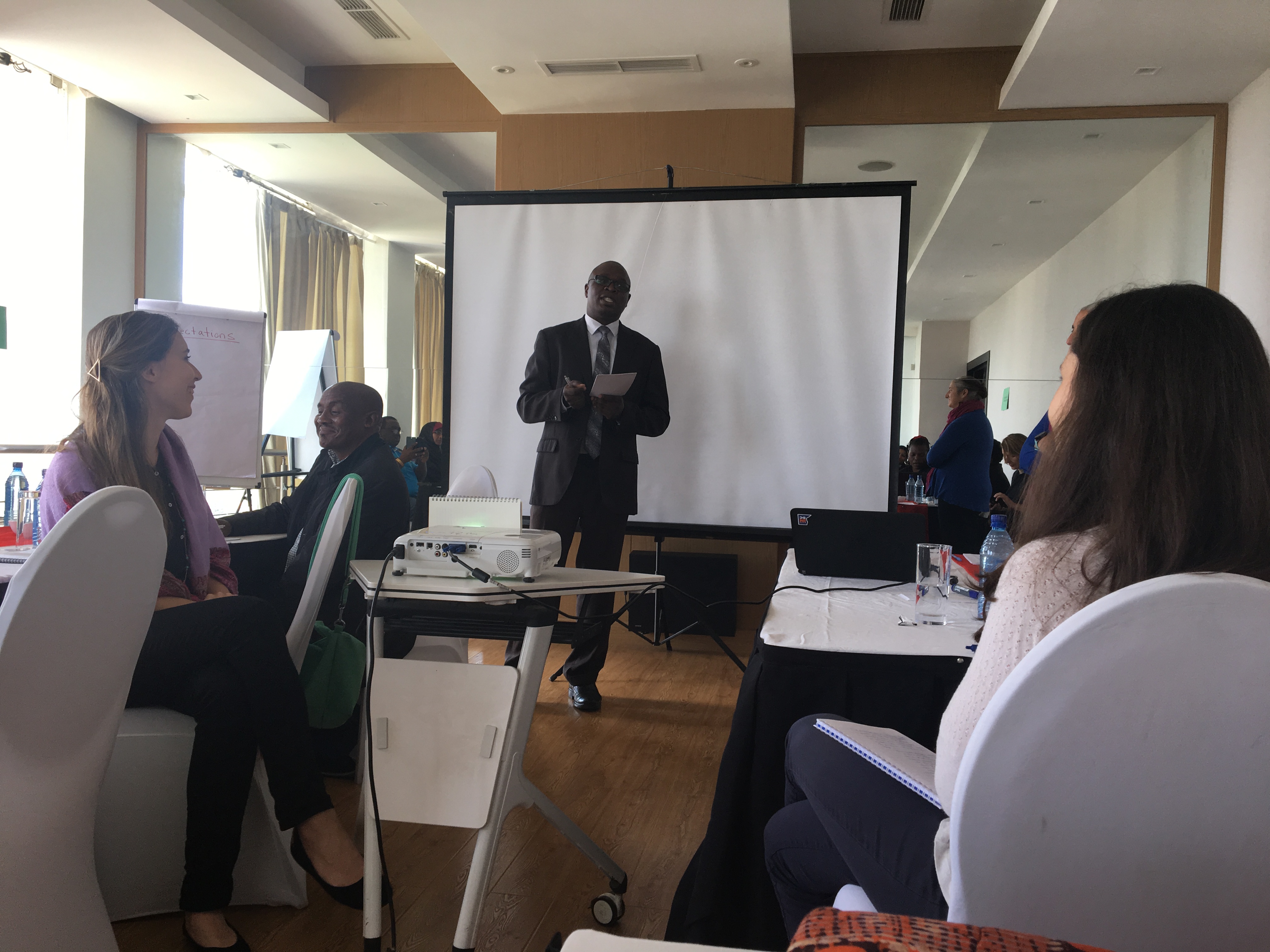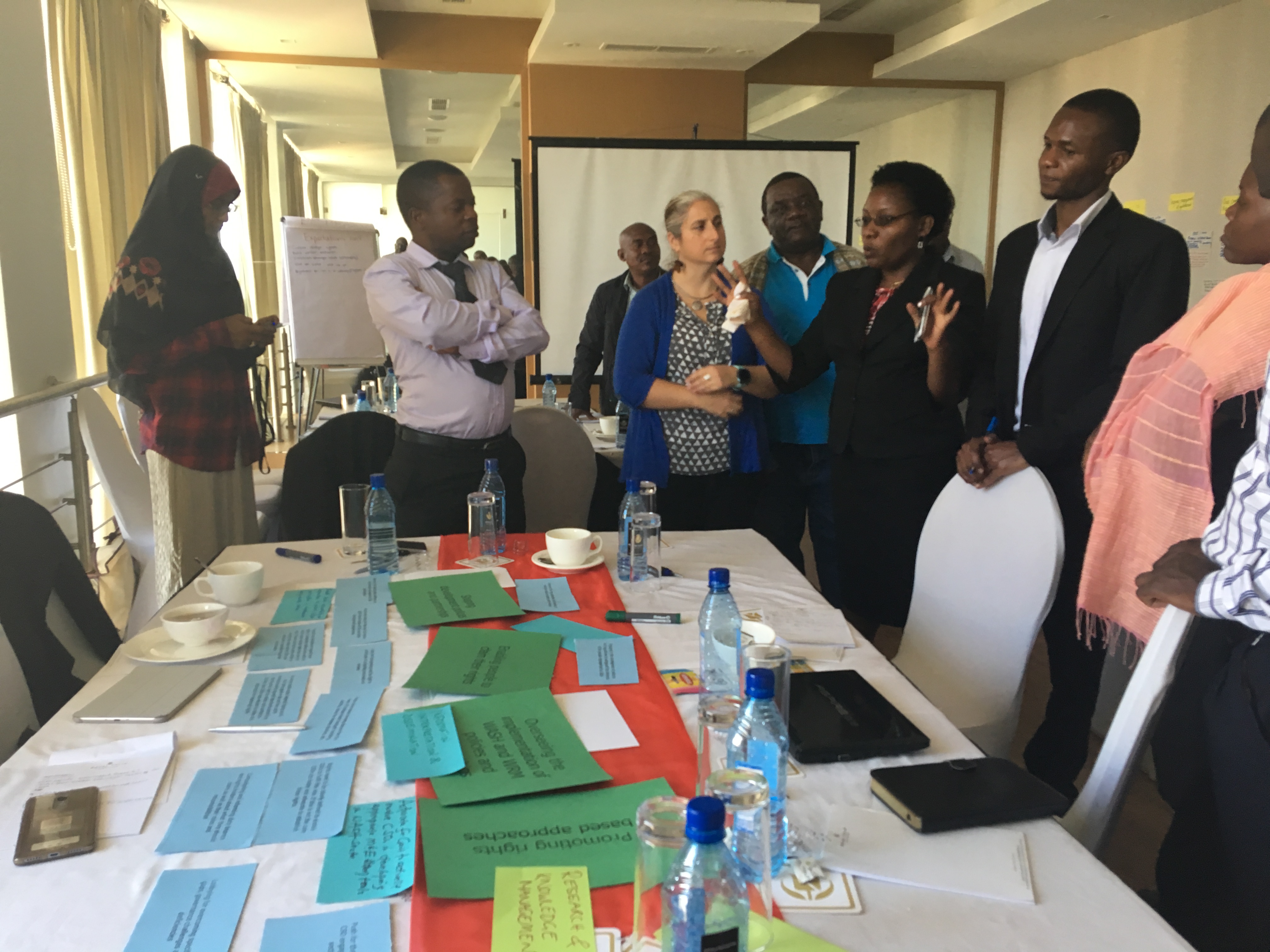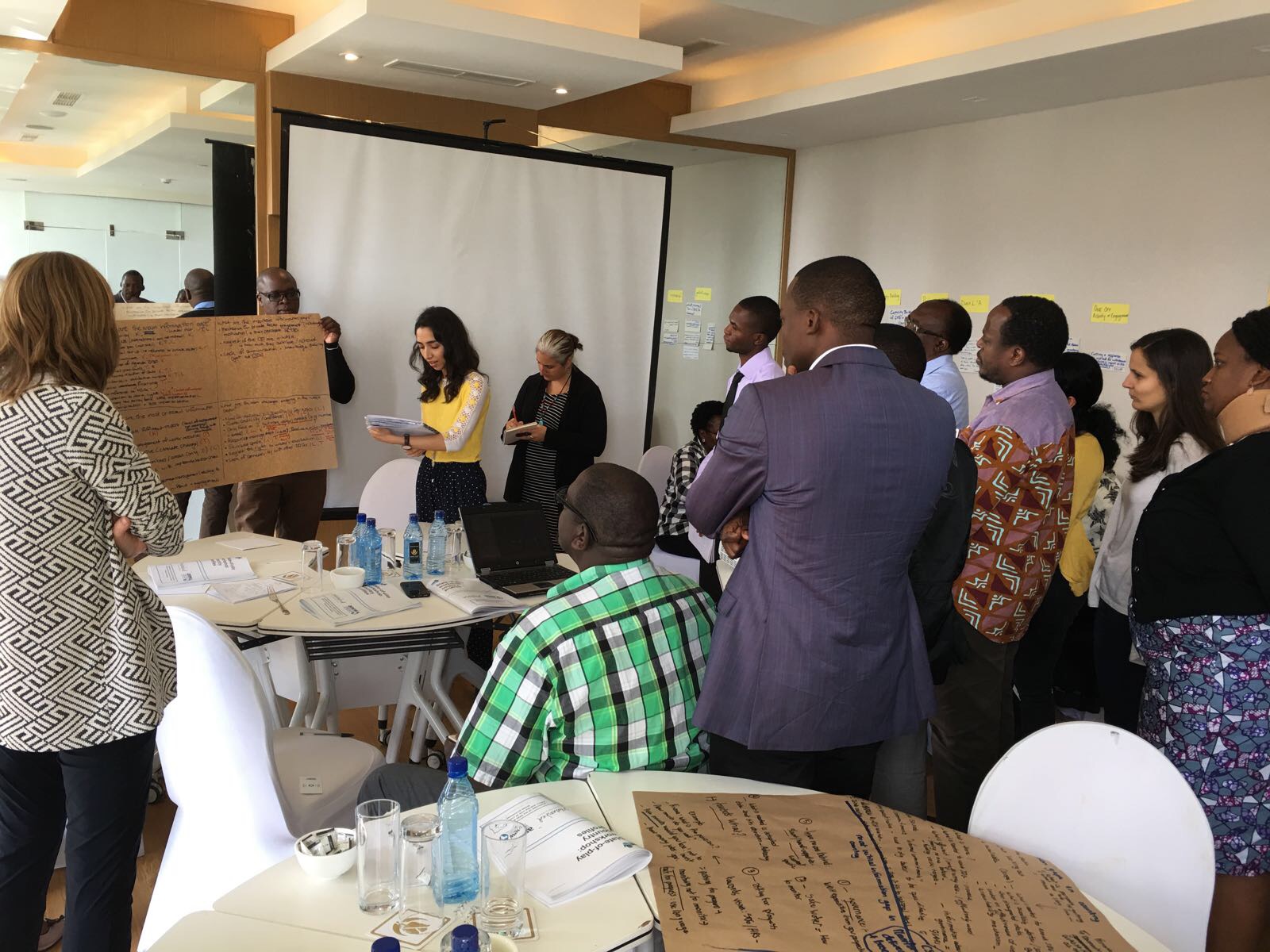This is particularly true today when countries such as Zambia are experiencing cholera outbreaks or when Kenyan organisations are fighting together to influence the water bill.
East Africa regroups strong Water and Sanitation Civil Society Organisations from Kenya (KEWASNET), Tanzania (TEWASNET), Malawi (WESNET), Zambia (Zambia WASH Forum) and others. These organisations play an important role in engaging with their governments, local authorities and community based organisations to make sure that the human rights to water and sanitation are implemented and that people are aware and engage in water and sanitation policies.

On the 27th – 29th of November 2017, the African Civil Society Network for Water and Sanitation (ANEW), the Watershed program, and End Water Poverty held a workshop in Kenya. The aim of the meeting was to go over challenges and opportunities for joint action in the sub region to influence the implementation of the sustainable development goals.

Overall ten country CSO networks and partners were represented at the meeting, gathering representatives from Zambia, Uganda, Sudan, South Sudan, Kenya, Tanzania, Malawi, Ethiopia and Rwanda.
The participants underlined common challenges in engaging in advocacy to reach the SDGs such as:
- The shrinking space for civil society organisations to engage with their governments and the challenges it creates to ask for accountability,
- The lack of leadership and coordination from governments around sanitation and hygiene,
- The lack of national harmonised systems for monitoring progress,
- The lack of general investments for the sector and the most marginalised,
- The lack of capacities at the district level who are not up to speed regarding how to reach the SDGs,
- In general the unsustainability of services.
They also underlined important opportunities including:
- The space that civil society has within AMCOW and to engage with governments in such arenas,
- A common will of civil society to engage outside only governments but also to donors, operators, and the private sector,
- A capacity for civil society to reach out to other sectors, and learn from them in order to work in a more crosscutting way on how to reach the SDGs.
They concluded that they would like work further together at the regional level on the following issues:
- On finance, looking at how to push governments to invest more efficiently in the sector, and tracking progress,
- Develop a strong advocacy strategy around inequalities, especially on the need for financing access for the most marginalised,
- A general call for more harmonised and better national monitoring systems and frameworks.

Overall, this meeting was a great step towards making sure that civil society voice remains united in Africa at the regional, sub-regional and national level. This space is unfortunately shrinking at the national level and therefore, it is now (more than ever) important to hold all actors accountable for progress towards our common sustainable development agenda.
To find out more about your country’s progress on Goal 6 see the country factsheets listed below. For more information on ways of holding your government accountable prior to the High Level Political Forum (HLPF), join our campaign with WASHwatch. Find out more information on the Action for Tomorrow campaign and use our helpful resources.
Let’s take action today for a sustainable tomorrow